Clarifying regulations on taxable income and family deductions
Commenting on the draft Law, delegate Thai Thi An Chung ( Nghe An ) said that the expansion of taxable income from salaries and wages according to the draft law still has many unclear points, which can easily cause confusion in implementation. According to current regulations, taxable income includes salaries, wages, amounts of salary and wage nature and allowances and subsidies (except for those listed as tax-exempt). However, this draft adds "remuneration and benefits in cash or non-cash in any form", making the scope of regulation too broad.
.jpg)
The delegate stated that if this regulation is applied, it is necessary to specifically determine whether the allowances for lunch, Tet gifts, bonuses for employees' children on the occasion of June 1, travel expenses for employees, etc. will be included in taxable income or not. "These are benefits of an incentive nature, contributing to creating a bond between employees and employers, not regular or profitable income. If not clarified, the application will encounter many difficulties and create a burden for relevant parties," the delegate emphasized.
According to delegate Thai Thi An Chung, this additional provision will cause consequences for all three main subjects: enterprises, tax authorities and employees. Enterprises will have to spend more costs and time to separate and account for each benefit in detail; tax authorities will have difficulty in developing a fair tax calculation method; and employees will easily feel dissatisfied when most of the support payments are considered taxable income. Therefore, it is necessary to study the removal of the phrase "in any form" and clearly stipulate in the Law or sub-law documents about exempted benefits.
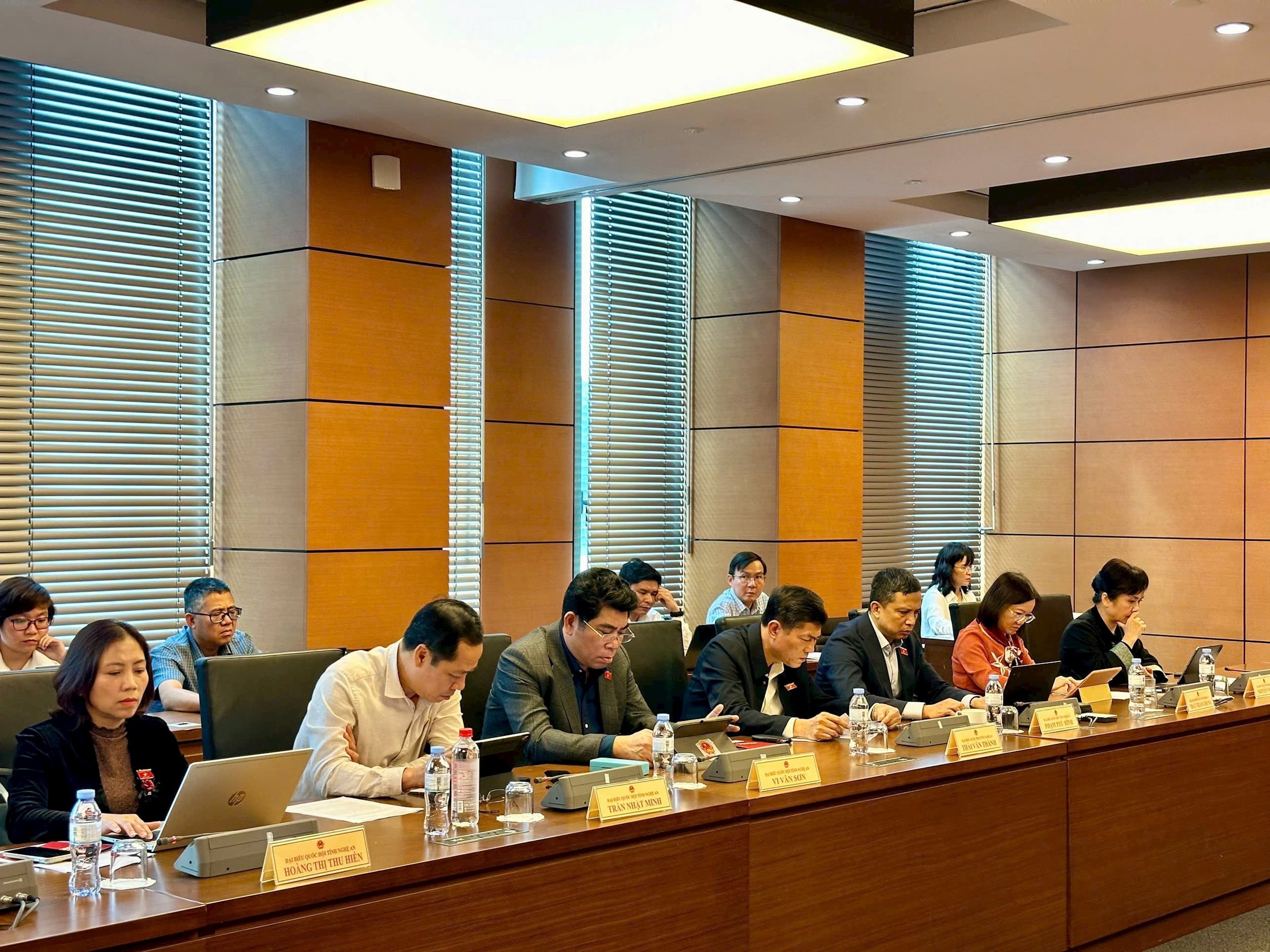
The delegate also suggested that if these benefits are still taxed, a new minimum income threshold must be stipulated to ensure reasonableness and suitability with reality... Based on the analysis, the delegate stated that the feasibility of this expanded provision is not high and should not be included in the law at the present time.
Referring to the issue of family deductions, delegate Thai Thi An Chung said that voters have repeatedly reported that applying a general deduction for the whole country is unfair, because the cost of living, housing, education , health care, etc. between regions has a huge difference. The current Labor Code has stipulated the division into 4 minimum wage regions, so the family deduction should also be applied similarly.
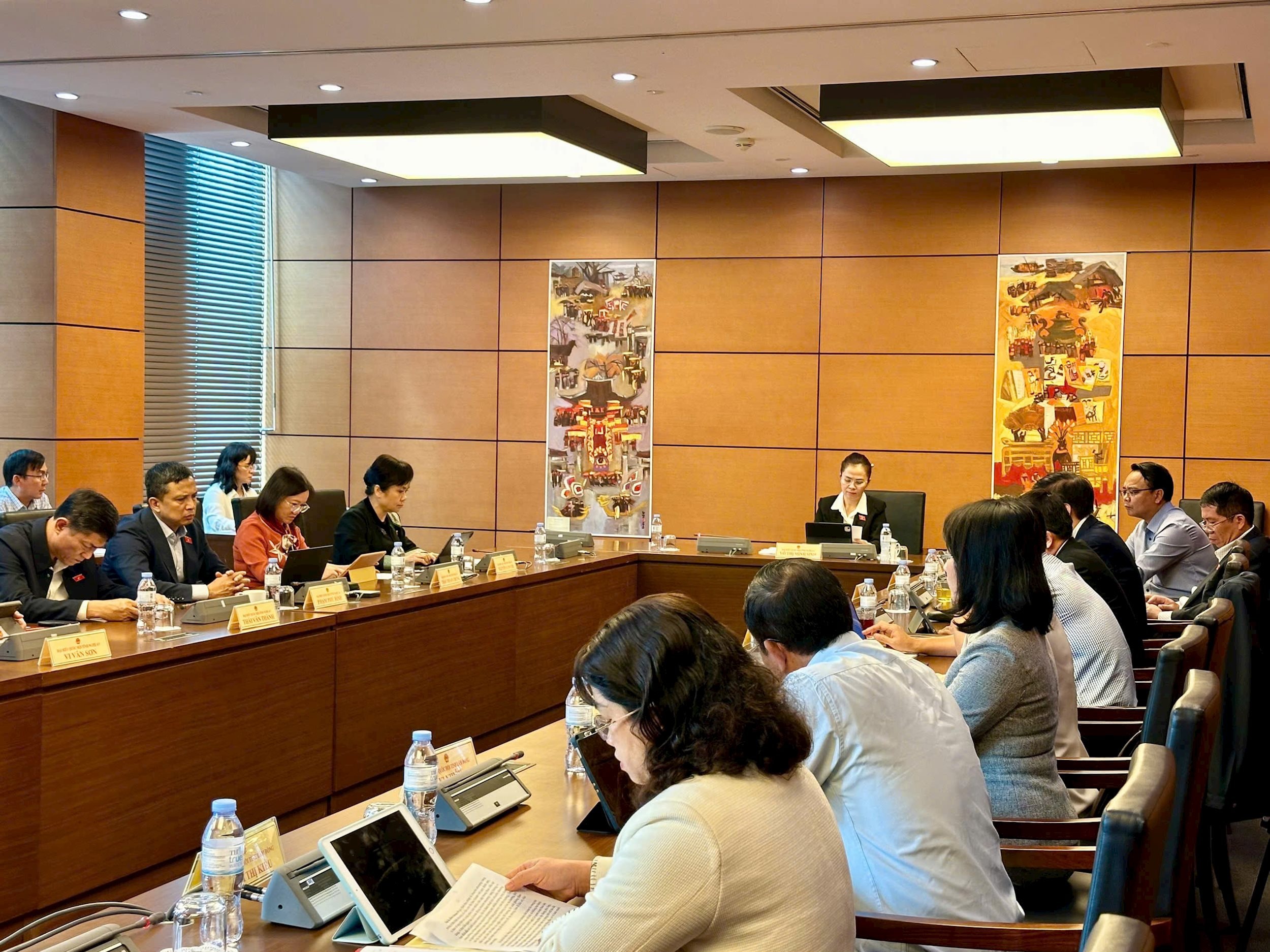
Delegates proposed to add regulations on regional adjustment coefficients so that the family deduction level reflects reality more closely. Specifically, Region 1 can be higher than Region 2, Region 2 higher than Region 3 and Region 4... At the same time, it is proposed to amend Clause 1, Article 10 in the direction: "Family deduction is the amount deducted from taxable income based on price and income fluctuations. The Government shall prescribe the basic family deduction level and regional adjustment coefficients in accordance with the socio-economic situation, actual living expenses and in line with the regional minimum wage policy in each period".
Perfecting tax policies to suit reality
Delegate Pham Thi Kieu (Lam Dong) commented: Article 3 of the draft has specified the types of taxable income, but it is unreasonable to continue to assign the Government to regulate "other taxable income". This is a content directly related to the rights and obligations of taxpayers, which needs to be specifically regulated in the Law to ensure clarity, transparency, stability and create consensus in society. The delegate proposed to remove the regulation at Point d, Clause 10, Article 3 on "other income regulated by the Government".
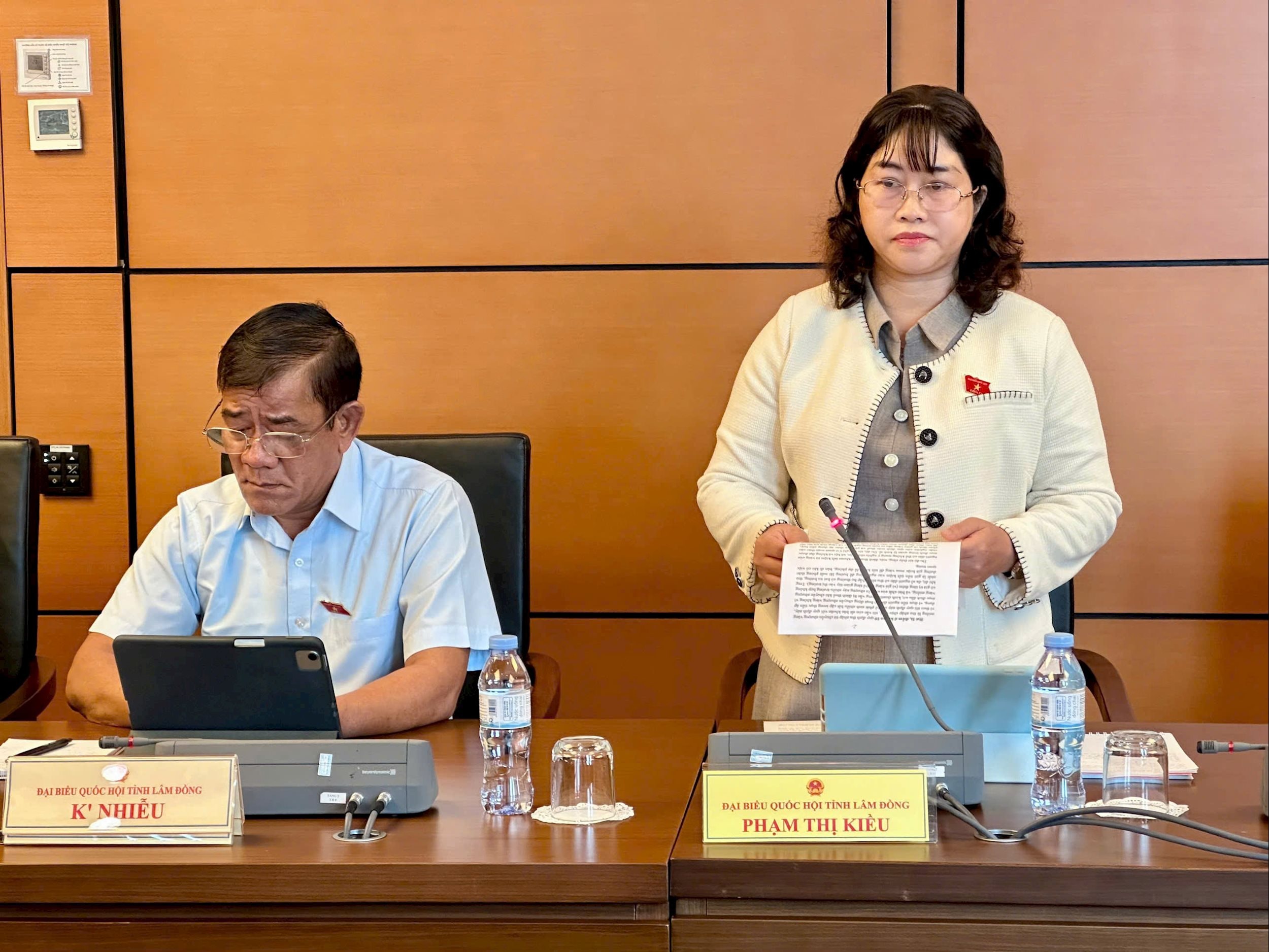
Regarding the regulation that income from gold bar transfers is taxable income, the delegate said that this may cause practical problems because many people buy gold not for speculation but only to hoard and save for personal use. Taxation in this case will not have humane and social meaning and will not achieve the goal of economic management. The drafting agency needs to study and distinguish clearly between short-term speculative investment activities and long-term hoarding, prescribe appropriate tax rates and application methods to ensure fairness and effective management.
Delegate Pham Thi Kieu also expressed her disagreement with the regulation that income from carbon credit transfers is subject to tax, because this market brings great benefits to green economic development, creating green financial resources for renewable energy projects, sustainable agriculture, afforestation, waste management and ecosystem conservation. Taxation will hinder the development of the market and go against the goal of net zero emissions that Vietnam has committed to. Delegates proposed to remove this regulation to encourage the development of the carbon credit market.
.jpg)
National Assembly member Vo Thi Minh Sinh (Nghe An) chaired the group discussion session. Photo: Pham Thang
Regarding the progressive tax schedule, delegates proposed increasing the taxable income at level 1 to match the economic growth rate and actual living costs, especially in large cities, while maintaining a 5% gap between levels as currently regulated to ensure fairness.
For income from the transfer of securities, capital and real estate, the draft currently maintains the same tax calculation method (0.1% for securities and 2% for real estate). Delegates proposed adding a plan allowing taxpayers to choose to pay tax on the difference if they have sufficient invoices and documents proving the purchase price and reasonable expenses. This calculation method correctly reflects the nature of income and encourages honest declaration.
Regarding the scope of authorization for the Government, the delegate said: The Draft is assigning the Government to regulate many core contents such as residence criteria, tax threshold, family deduction, gold bar tax, deductible medical and education expenses, etc. These are factors that directly affect people's tax obligations and need to be specifically regulated in the Law to ensure the legislative power of the National Assembly and the stability of the policy. The delegate suggested only delegating authority to the Government for technical contents, and at the same time stipulating the authority to submit to the National Assembly Standing Committee to adjust the family deduction level in necessary cases.
.jpg)
From another perspective, delegate Dang Hong Sy (Lam Dong) said that the drafting agency needs to study and supplement tax exemption and reduction policies for individuals working in the fields of high technology, innovation, research and development, and at the same time consider education, training and healthcare costs to be consistent with the Party's policy on developing high-quality human resources. The delegate also noted the need to unify the concepts of "high-tech human resources", "preferential income" and "tax exemption and reduction period" between the Personal Income Tax Law and the High Technology Law to ensure consistency.
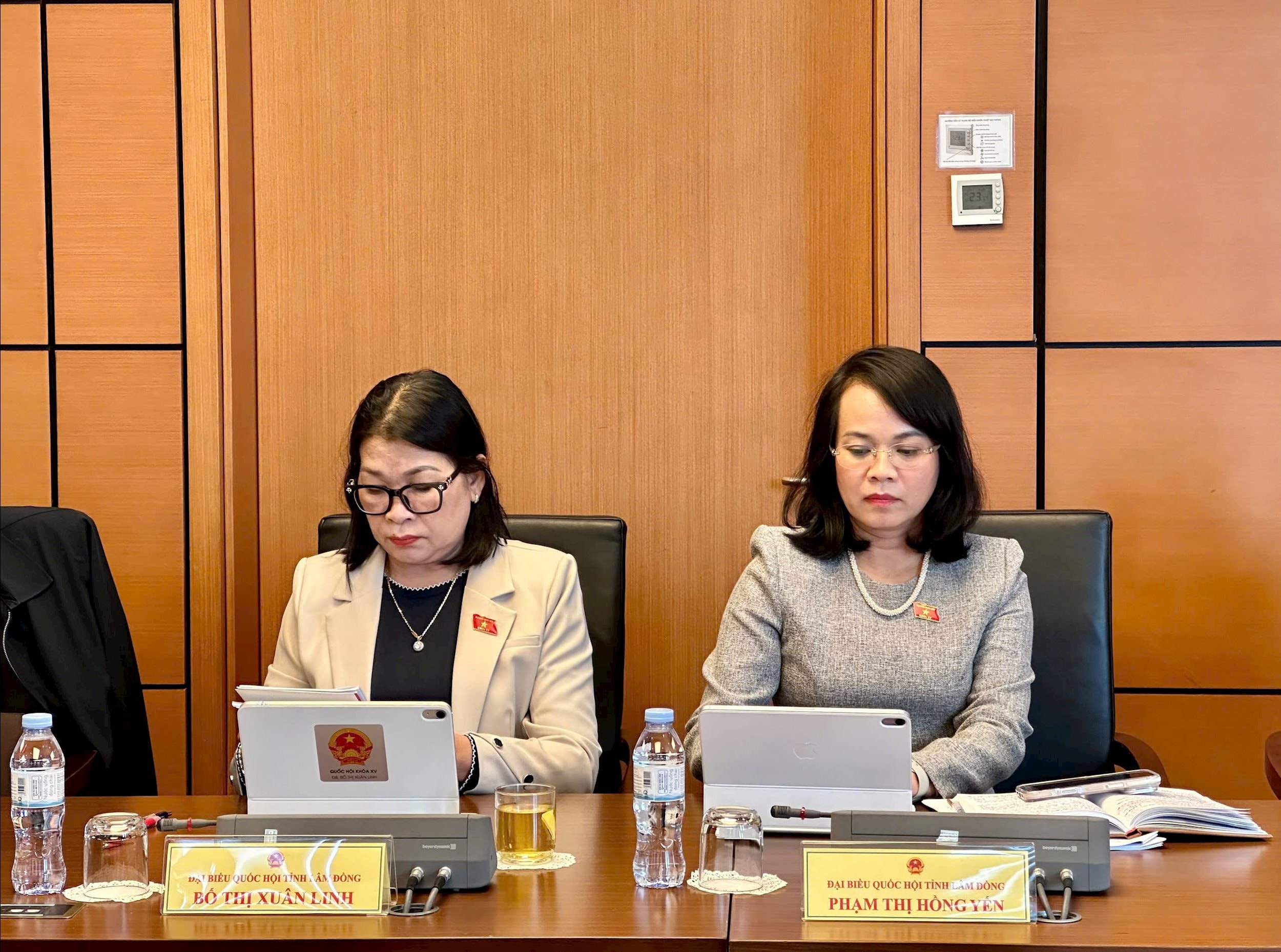
Regarding tax policy for business individuals, some delegates agreed with raising the taxable revenue threshold from 100 million to 200 million VND/year, but suggested only calculating tax on the excess portion to ensure fairness and avoid creating a mentality of avoiding declaration. Along with that, delegates also suggested that it is necessary to consider maintaining 7 tax levels instead of reducing them to 5 levels as in the draft, or if keeping 5 levels, it is necessary to adjust the reasonable distance between the levels to avoid large differences that cause unreasonableness.
Regarding the gold bar trading tax, there are opinions in agreement with the direction of a light tax (0.1%) to limit speculation, but it is necessary to distinguish between business activities and people's hoarding... At the same time, delegates also agree with the effective date of the Law from July 1, 2026, with the contents related to annual income (such as salary and wages) applied from January 1, 2026 to ensure full preparation and avoid complicated procedures for taxpayers.
Source: https://daibieunhandan.vn/du-thao-luat-thue-thu-nhap-ca-nhan-sua-doi-huong-toi-dao-luat-minh-bach-bao-dam-cong-bang-va-kha-thi-10394495.html



![[Photo] Closing of the 14th Conference of the 13th Party Central Committee](https://vphoto.vietnam.vn/thumb/1200x675/vietnam/resource/IMAGE/2025/11/06/1762404919012_a1-bnd-5975-5183-jpg.webp)




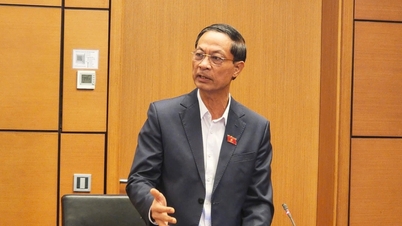



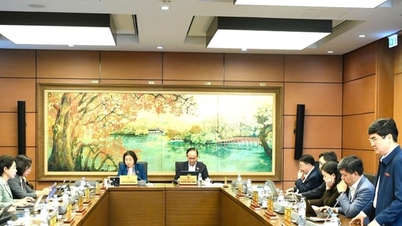

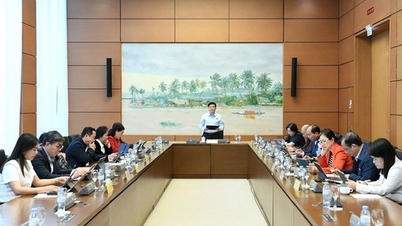

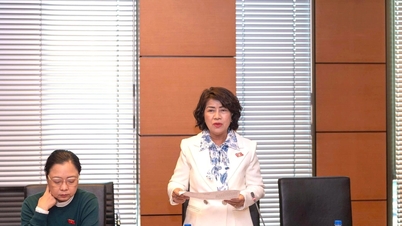
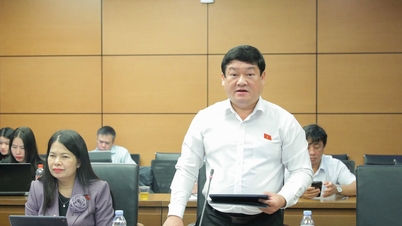
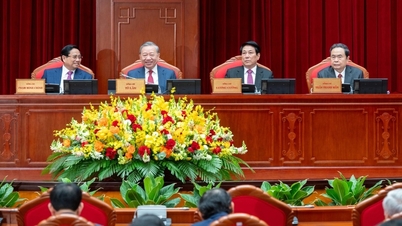
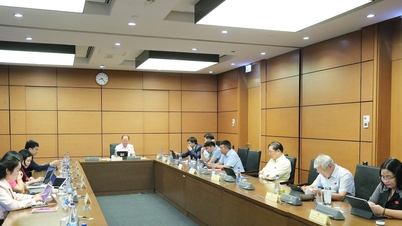
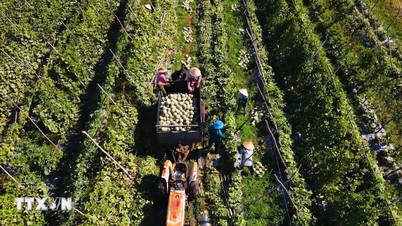

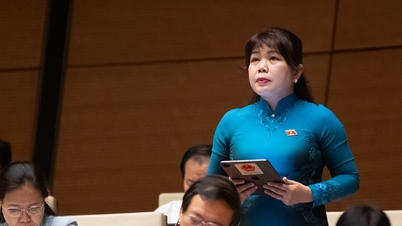
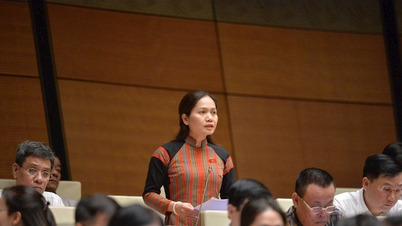
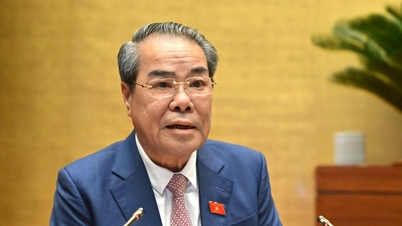




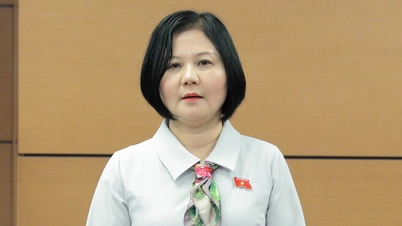
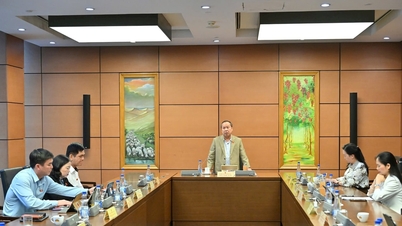
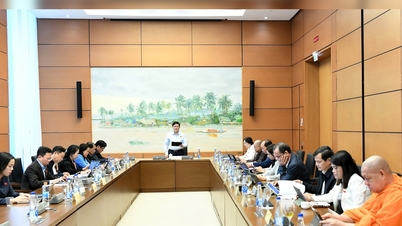
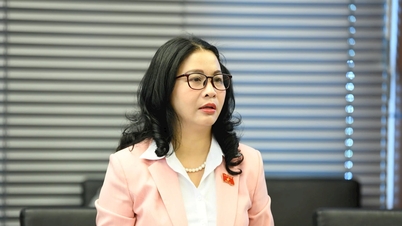
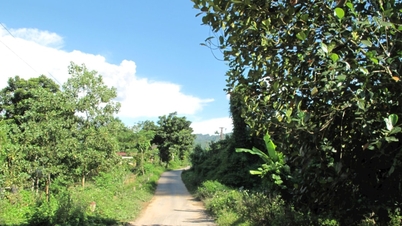
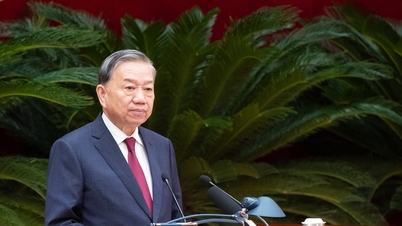























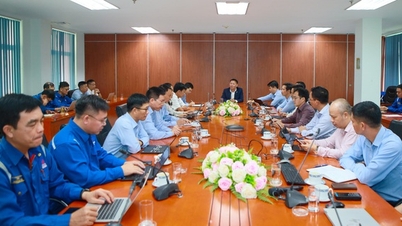


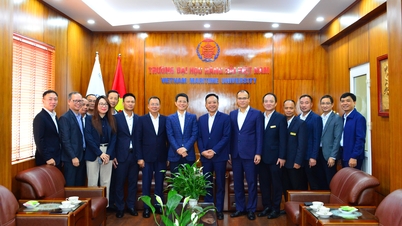
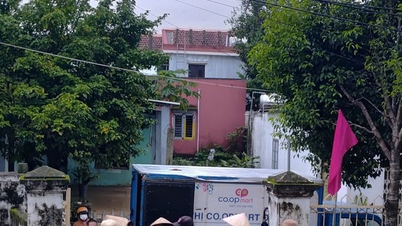
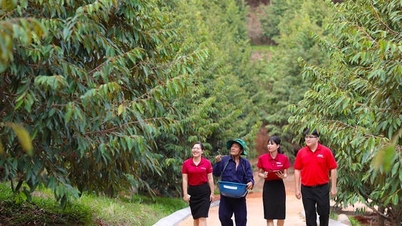







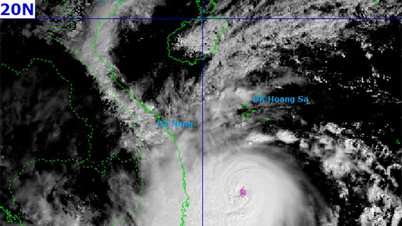











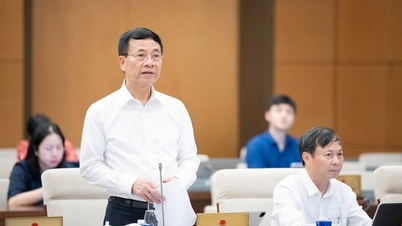




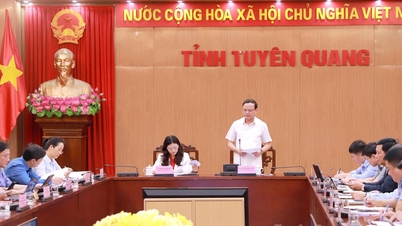

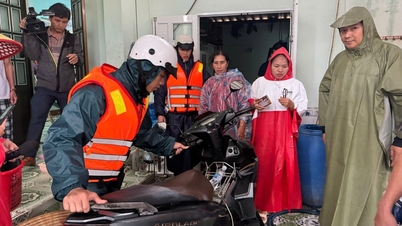






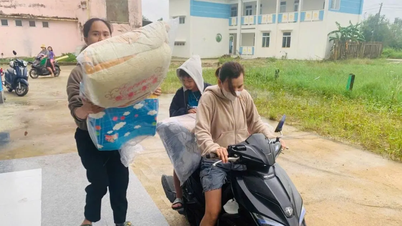












Comment (0)